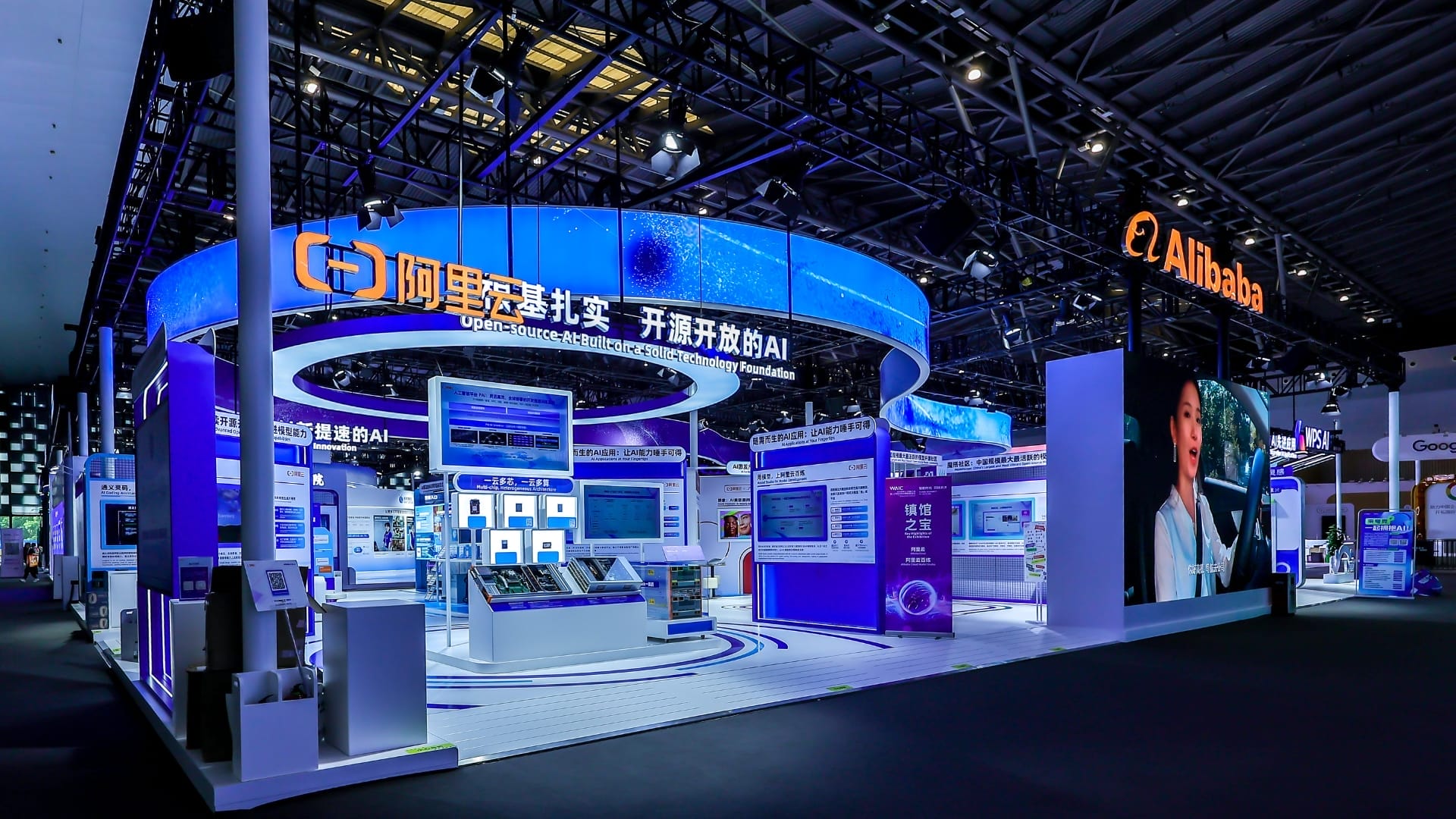Alibaba showcases AI cockpits, enterprise tools and smart glasses at WAIC 2025
Alibaba unveils AI cockpit, smart glasses and enterprise solutions at WAIC 2025, powered by its Qwen language models.

Alibaba Group has unveiled a range of AI-powered technologies at the World Artificial Intelligence Conference (WAIC) 2025, including an intelligent automotive cockpit system, enterprise solutions with global partners, and its first smart glasses. All the innovations are powered by Alibaba’s Qwen large language models (LLMs), demonstrating the company’s continued push to bring AI into everyday applications.
Table Of Content
Jingren Zhou, CTO of Alibaba Cloud Intelligence, said, “The innovations underscore Alibaba’s growing role as a leader in applied generative AI, delivering intelligent solutions that are not only technologically advanced but deeply integrated into everyday experiences and industrial workflows.”
AI cockpit integrates voice, vision and contextual intelligence
The new automotive intelligent cockpit, developed with semiconductor firm Qualcomm and Alibaba’s subsidiary Banma, is built on a large multimodal model (LMM) solution powered by Qwen. It runs on Qualcomm’s Snapdragon 8397 platform and is designed to make in-car experiences more natural and interactive.
The system features Banma’s AI assistant, Yan AI, which supports natural voice commands and can respond to requests such as booking restaurants, buying movie tickets, or navigating to destinations. The assistant goes beyond basic voice recognition by anticipating user needs. For example, it can recommend music or adjust cabin temperature automatically, based on the context of the journey.
Global companies adopt Qwen for smart city applications
Alibaba also highlighted partnerships with major global enterprises that are using Qwen to improve operations and sustainability.
One example is lighting firm Signify, which has developed the industry’s first generative AI agent for its Interact City Flex street lighting system. This GenAI agent helps monitor and manage street lights, allowing city managers to reduce energy consumption while improving maintenance efficiency.
By using Qwen’s capabilities, the agent supports natural language input for generating and applying dimming strategies. It also detects system anomalies and suggests maintenance solutions in real time.
“Digital transformation in urban environments relies on intelligent systems that make city management smarter and more sustainable,” said Hans Nikol, Head of Open Innovation at Signify. “By making use of Alibaba’s Qwen model in our GenAI Agent, we’re empowering cities to proactively reduce energy consumption and lower operational costs. This collaboration marks an important step in intelligent city management and underlines our commitment to innovation and our vision for greener, brighter cities.”
Alibaba debuts Quark AI Glasses
In a move into consumer wearables, Alibaba introduced the Quark AI Glasses—its first self-developed smart eyewear. Powered by Qwen and Quark’s multimodal AI capabilities, the glasses are designed for all-day use and provide voice-driven interaction across Alibaba’s ecosystem.
The lightweight glasses support hands-free calls, music playback, real-time translation, and meeting transcription. They offer high-quality imaging, long battery life, and ergonomic design for extended wear.
Users can also access Amap navigation via a near-eye display, shop and compare prices on Taobao, receive travel updates from Fliggy, or make payments using Alipay—all through voice commands.
Quark AI Glasses are set to launch in China by the end of 2025, positioning Alibaba in the growing market for context-aware, AI-driven wearable tech.
The company said it remains committed to open innovation. Its Qwen model series has reached over 400 million downloads and supported the creation of more than 140,000 derivative models, making it one of the most widely used open-source AI model series globally.
















